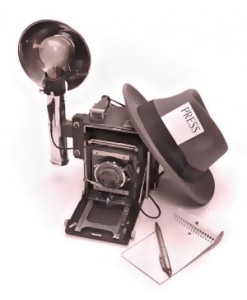I Was Wrong About The Chen Affair
I am in the unenviable position of having to say I was wrong and am sorry. This is in relation to the issue of US diplomacy vis a vis China as relates to Chinese dissident Chen Guangcheng. In case anybody has forgotten, I wrote a rather harsh article toward the US government, by the State Department, conduct within 24 hours or so of it hitting the news wires:
Hillary Clinton, and the State Department under President Obama, have been far from perfect, to be sure; but, overall, one of the stronger, if not strongest, departments in Obama’s cabinet. But this is way ugly, and ought to, by all rights, leave a very permanent mark. It is a stain fairly earned in every sense of the word. Hard to imagine a more cravenly constructed pile of PR bullshit since the Jessica Lynch affair. Yet here it is in living steaming brownish color. All painted with Madame Secretary conveniently in Beijing, China. Awkward!
In a nutshell, I was extremely critical of the entire show, and especially the press manipulation component thereof.
I was wrong. I still have pretty strong issues with the opportunistic way in which the press was contacted by Chen on the way from the embassy to the hospital, which was completely aided and abetted by the US diplomatic officials with him, but this is, at this point, kind of a minor quibble it seems. And, heck, who knows, maybe it was even part of the plan.
Whatever, it seems to have worked out.
Here is today’s lead from the Washington Post:
Blind legal activist Chen Guangcheng, who had been at the center of a diplomatic row between the U.S. and Chinese governments, left Beijing on Saturday afternoon on a United Airlines flight bound for Newark and an uncertain life in the United States, after Chinese officials and American diplomats worked out of the public view to arrange for him and his family to travel out of the country.
In the past two weeks, while waiting for movement on the Chinese side, senior staff in the State Department had been laying the groundwork for Chen’s departure, including the logistics of his transportation, according to a senior administration official who was not authorized to give his name.
Listen, this is still very far from ideal in a number of respects, and it will be a long time, if ever, before we know all the facts and circumstances surrounding this mess. But fair is fair, my initial criticism, even if correct in some lesser elements, was dreadfully wrong overall.
Hat’s off to Hillary Clinton, the State Department and the Obama Administration. It is far from perfect, but it is looking pretty good. I was wrong to be too critical, too soon.
UPDATE: The Washington Post has a pretty fleshed out tick tock on the gig. It actually does look like fairly decent work by State. Would love to see an honest version of the same on the flip side, from the Chinese perspective. That would be fascinating.

